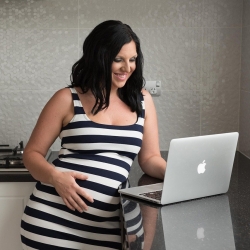March 20, 2020
How important is it to be happy at work?
 How supportive are you of your employees’ wellbeing? New research from CV-Library claims that two-thirds of Brits (61.7 percent) say being happy at work is the most important part of a job, but 87.9 percent feel their employer could do more to improve morale in the workplace.
How supportive are you of your employees’ wellbeing? New research from CV-Library claims that two-thirds of Brits (61.7 percent) say being happy at work is the most important part of a job, but 87.9 percent feel their employer could do more to improve morale in the workplace.
What’s more, the study, which surveyed 2,300 UK professionals, suggests that Brits think being happy is more important than salary (22.1 percent) and location (15.5 percent) when it comes to work. Interestingly, being happy in their job was also more important for women (66.4 percent) than men (58.7 percent), as well as for 55-64-year olds (66.9 percent) and 45-54-year olds (64.8 percent). (more…)









 Working in multidisciplinary teams makes work more enjoyable and means that customers receive a better service claims new research from
Working in multidisciplinary teams makes work more enjoyable and means that customers receive a better service claims new research from 





 The number of women aged between 60 and 64 in work has increased by 51 percent since the 1995 Pensions Act came into effect which increased the female state pension age from 60 to 65 since 2010, claims research from
The number of women aged between 60 and 64 in work has increased by 51 percent since the 1995 Pensions Act came into effect which increased the female state pension age from 60 to 65 since 2010, claims research from 
 Organisations across Europe are facing a skills challenge caused by digital transformation, with many struggling to keep pace with learning and development (L&D) needs, claims research from
Organisations across Europe are facing a skills challenge caused by digital transformation, with many struggling to keep pace with learning and development (L&D) needs, claims research from 
 A gap exists between the way leaders and employees view progress toward equality in their organisations, according to new research from
A gap exists between the way leaders and employees view progress toward equality in their organisations, according to new research from 


 Having an employee representative on the director’s board has absolutely no impact on reducing the pay level of the company’s CEO, according to research from
Having an employee representative on the director’s board has absolutely no impact on reducing the pay level of the company’s CEO, according to research from 
 More than half of all strategic decisions made by directors turn out to be wrong according to
More than half of all strategic decisions made by directors turn out to be wrong according to 






